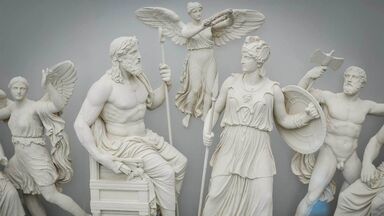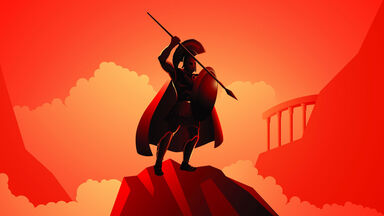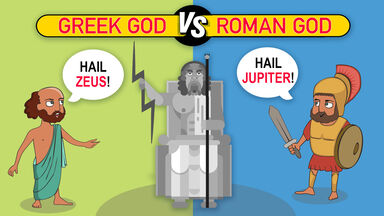In the Trojan War he takes the side of the Greeks, because he had been cheated of his reward by Laomedon, king of Troy, for whom he had built the walls of the city.
Most of these were free translations from the Greek, his favourite subjects being the legends of the Trojan war and the house of Pelops.
Of these the most important are Alexander of Macedon and Charlemagne, while alongside of them Priam and other heroes of the Trojan war appear during the middle ages in strangely altered guise.
She is the patroness and protectress of those heroes who are distinguished for their prudence and caution, and in the Trojan War she sides with the more civilized Greeks.
According to him, the myths arose from definite local (especially atmospheric and aquatic) phenomena, and represented the annually recurring processes of nature as the acts of gods and heroes; thus, in Achill (1853), the Trojan War is the winter conflict of the elements in that district.





